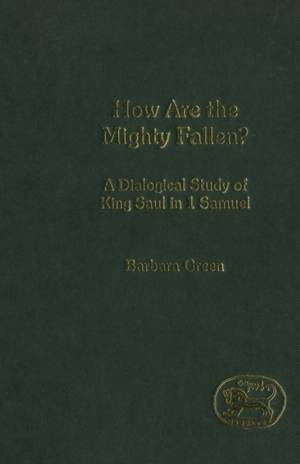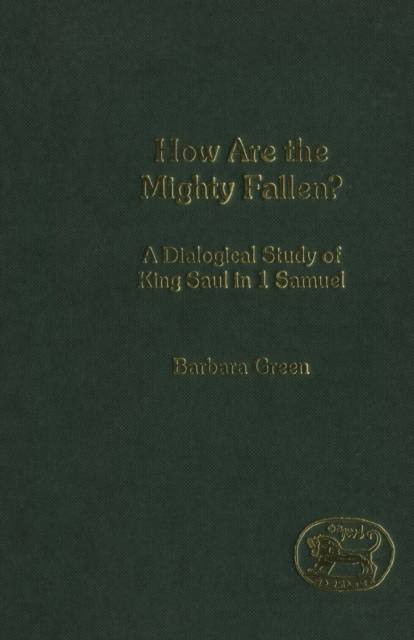
Bedankt voor het vertrouwen het afgelopen jaar! Om jou te bedanken bieden we GRATIS verzending (in België) aan op alles gedurende de hele maand januari.
- Afhalen na 1 uur in een winkel met voorraad
- In januari gratis thuislevering in België
- Ruim aanbod met 7 miljoen producten
Bedankt voor het vertrouwen het afgelopen jaar! Om jou te bedanken bieden we GRATIS verzending (in België) aan op alles gedurende de hele maand januari.
- Afhalen na 1 uur in een winkel met voorraad
- In januari gratis thuislevering in België
- Ruim aanbod met 7 miljoen producten
Zoeken
€ 440,95
+ 881 punten
Omschrijving
This book marries the several elements: a given text (1 Samuel), a focal character (King Saul), a spacious and creative theorist (Mikhail Bakhtin), a historical context (the collapse of monarchic Israel and the moment for return. The dilemma for the exile community is to return with royal leadership or without it); a reading challenge is: can a character be a cipher for a corporate experience (Saul represent the whole monarchic experience)? The author argues that the narrative of 1 Samuel may be read as a riddle propounding the complex story of Israel/Judah's experience with kings as an instruction for those pondering leadership choices in the sixth century. The work is an extended reflection on what went wrong with kings and why new leadership must be attempted. The extended riddle of Saul works to show how the life of the king is fundamentally destructive, not because any is malicious but because of many factors of weakness and inadequacy that will be familiar to readers.
Specificaties
Betrokkenen
- Auteur(s):
- Uitgeverij:
Inhoud
- Aantal bladzijden:
- 432
- Taal:
- Engels
- Reeks:
- Reeksnummer:
- nr. 365
Eigenschappen
- Productcode (EAN):
- 9780826462213
- Verschijningsdatum:
- 1/06/2003
- Uitvoering:
- Paperback
- Formaat:
- Trade paperback (VS)
- Afmetingen:
- 152 mm x 242 mm
- Gewicht:
- 911 g

Alleen bij Standaard Boekhandel
+ 881 punten op je klantenkaart van Standaard Boekhandel
Beoordelingen
We publiceren alleen reviews die voldoen aan de voorwaarden voor reviews. Bekijk onze voorwaarden voor reviews.









